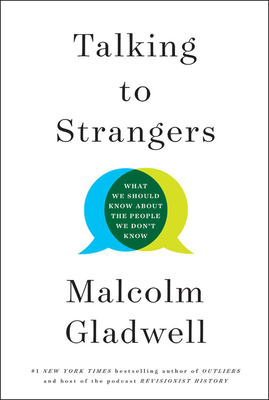One of the first questions I get from other students here when I tell them I want to study behavioral economics is, “Have you heard of Malcolm Gladwell?” How could I not have heard of him, is how I typically react.
He has solidified his position as one of the most well-known writers in recent memory. He can charge $45,000 in speaking fees per presentation thanks to his reputation and apparent expertise, most notably at Bank of America (and if you were wondering how BOA has been doing recently…).
Academics have also praised him because they gave him a prize from the American Sociological Association for his excellence in “disseminating sociological research.”
Yes, I have read several of his books on the advice of numerous peers. As they indicated, the majority of his work focuses on social psychology issues, which is a crucial aspect of many commercial and economic themes.
His books are brilliantly written, and I have found them to be hypnotic at times as he deftly and seamlessly moves from story to story and topic to topic. His writing is engaging and distinctive.
Unfortunately, I have discovered that his writings are full of simple anecdotes that serve no purpose other than to pique general curiosity and allow the author to engage in hazy theorizing, as opposed to nonfiction, professional, business-level books.
Gladwell is not an academic; he is a journalist. He does not make the claim that he has formal training in any of the disciplines. His line of work is narrating stories. He is not doing studies in a lab and coming to logical conclusions from them.
He does, however, cite scientific studies and recognize the efforts of other scientists, dressing his ideas in the garb of academia. It would be difficult to locate a Gladwell book in a bookstore that isn’t too dissimilar from the writings of other true academics, such as Dan Ariely or Steven Pinker (one cannot discuss Gladwell without addressing Pinker as well). He was the first person, more than five years ago, to understand Gladwell.
Related: Joel Osteen Controversy: Here Are the Reasons Why People Dislike Joel Osteen
However, Gladwell writes with a distinct purpose in mind. When he expresses his ideas, he loves confronting apparent inconsistencies and exudes an air of intellectual defiance. Many of his writings are centered on these inconsistencies, such as how the underdog may actually be at an advantage (David and Goliath).
He gives his readers confidence as they believe they have discovered an intellectual treasure trove of pertinent information. He should limit their enthusiasm, I would advise his readers. Consider his remark from the Brian Lehrer show on public radio, which was initially reported by Slate, where he was genuinely attempting to address his detractors.
“As a storyteller, I seek out scholarly research to learn how to enhance my storytelling. I don’t do things their way since it costs money and makes their writing difficult to read. If your objective is to communicate with laypeople, you cannot approach the situation in their manner.
He must be referring to the manner in which real academics present their conclusions when he says “their way.” Here, he is acknowledging that he does not subject any of his hypotheses to generally accepted assessments of the correctness and rigor of science.
Gladwell stated in a conversation with The Telegraph that “The error is believing that these books are a means to an end. My writings serve as a stepping stone to harder material.”
By effectively claiming that you also need a copy of Psych 101 by your side to make sure everything accords with actual facts, Gladwell is essentially dismissing his own work.
Why does he continue to give Ted talks after Ted talks and hold business meetings that pretend to be about his ideas but are actually about science-inspired fiction if his books are not “ends in themselves”?
He only takes the references and studies as a starting point before coming to entirely distinct, irrelevant, and unreviewed conclusions. They lend his theories an erroneous level of scientific validity.
And that legitimacy has already exceeded the breaking limit for society (if I daresay). Look up some of Gladwell’s ideas on Google and see what comes up. LinkedIn professional advice a video of him counseling new businesses Lessons for local governments in leadership Unjustly, he is already regarded as a reliable source of information.

Predictability is the component of the “real” test where his work truly fails. Some of the phenomena he describes sound real because of the way he writes about the past. We are left with nothing except coincidental happenings that are disguised as societal forces since he only chooses practical anecdotes that match his version of the story.
Few of Gladwell’s writings have any scientific relevance for anyone attempting to formulate informed predictions about the future, which is a characteristic of actual science.
Related: Chris Hansen Controversy: Chris Hansen of “To Catch a Predator” Is Accused of Harassment
Consider Gladwell’s books as a film with a promotional strategy that emphasizes the “based on a real story” aspect. The studio selects a unique tale, dramatizes it extensively, and then embellishes it to the point where you are unsure of what is real and what isn’t.
Do you know Gladwell? Of sure, I say. He is a master of presentation and engagement, and he has earned his place as one of the greatest authors in recent memory. I simply wish he weren’t the first person that comes to mind when social science and behavioral economics are mentioned.
To Know More Latest Updates You Can Visit Our Website: landscapeinsight.com

Irving is the Chief Editor at the Landscape Insight. He lives just outside of New York. His writings have also been featured in some very famous magazines. When he isn’t reading the source material for a piece or decompressing with a comfort horror movie, Irving is usually somewhere in his car. You can reach Irving at – [email protected] or on Our website Contact Us Page.








